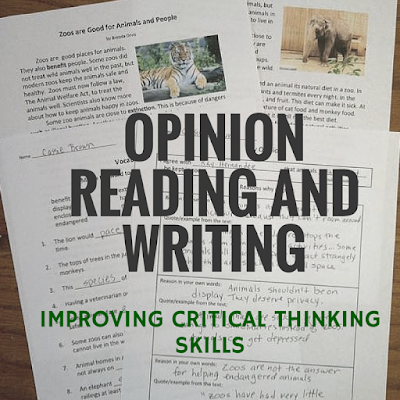At first, I was surprised at this misconception, and chalked it up to simply lack of exposure to this kind of reading. After more experience, however, I found it's more complicated than that, and a large part of it is in the semantics.
First, when students are learning to write in the early years, they are encouraged to preface opinions with "I think," "I feel," and "In my opinion" phrases. This is important in the process when students are learning to distinguish between fact and opinion. As writing becomes more sophisticated in middle and high school, however, these phrases are eliminated, making statements of opinion less obvious.
The second issue is how students define the word "opinion." Often, they think if a statement is labeled an "opinion" it is something that can't be proven or disproven by facts, such as which is the best restaurant in town. More advanced critical thinking, of course, quickly shows that even solid facts and research rarely conclusively prove anything. Many opinions on the same issue can be supported by facts.
The later elementary grades are a good time to explore these critical thinking skills. My favorite way to facilitate this is to have students do a close reading of two short opinion pieces that are research and fact based, one pro and one con. This helps clarify that different authors reach different conclusions about the same issues, even though the authors are privy to the same facts. I like to have the students answer questions about each article, learn the critical vocabulary, and then bring it all together by deciding which author they agree with. Group work and class discussions further promote the skills.
To take it one step further, it's helpful to introduce a writing project in the form of a short five-paragraph essay. With this early introduction, students are on their way to developing the critical thinking skills that will serve them all the way through high school, college and beyond.
I've put together some packets that go through the process I described above. These are common-core based, with challenging reading for fourth and fifth grade (in the Lexile stretch bands) and at grade level for sixth and seventh grade.




No comments:
Post a Comment